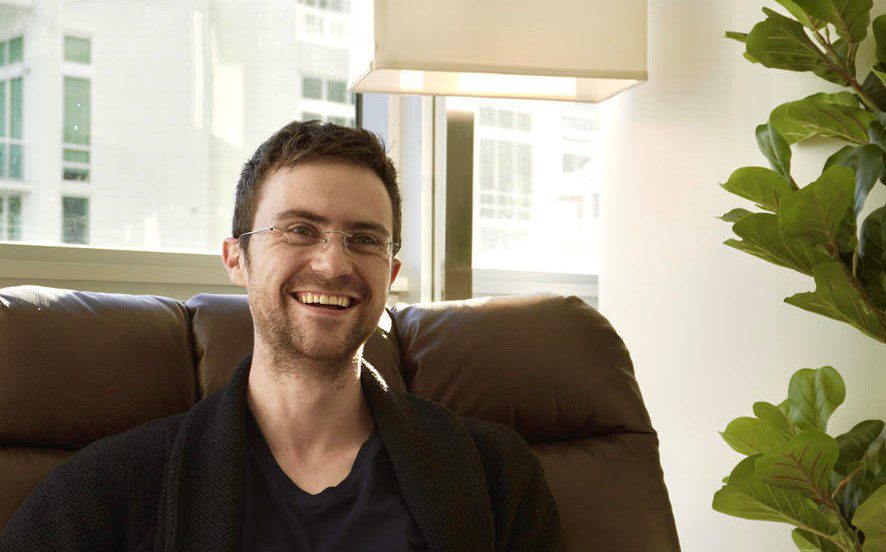Teamflow is a venture-funded startup making remote work really work, and it started as a side project.
In his eight years working as a software engineer, Florent Crivello had experienced his share of technical outages. After all, it’s a normal part of work as a software engineer. But when he was working as a product manager at Uber in San Francisco, one particular technical outage was different.
“This outage was especially painful,” Crivello told Refresh Miami. “There were a lot of moving pieces, we needed to coordinate different stakeholders, and we needed to come together.” By the evening, Crivello felt burnt out: “It felt like a day from hell.”
Crivello would eventually realize that the origin of this difficulty was the fact that they were putting this software fire out virtually rather than in an office. “It was so much harder to collaborate remotely,” he said.
During a work sabbatical, Crivello started to play with developing a digital platform that would improve upon the typical conference call-style collaborative experience that has become so central to post-pandemic life. “Hacking something… got sucked in.”
Fast forward just a few months, and this side project grew into a full fledged business: Teamflow. The startup has received $50 million in funding in less than a year, including a $35 million Series B round led by Coatue.
Teamflow offers a virtual office space for companies wanting to up their game when it comes to remote working. And some of the world’s biggest brands are taking note: clients include Shopify, Netflix, and Dropbox. “We’ve developed the first multiplayer operating system for teams,” said Crivello. A few months ago, Teamflows’ users surpassed a cumulative one million hours of meetings. According to Crivello, users spend and average of six hours a day, five days a week on Teamflow – figures that rival even the stickiest of platforms.
Delegated to our home offices (or bedrooms) for the better part of two years now, many of us yearn for the camaraderie, spontaneity, and creativity that comes from in-person interactions. Crivello argues that this can all be found in Teamflow workplaces, citing an impromptu event recently where half of the Teamflow staff decided to hang out and watch a SpaceX launch together in a communal (virtual) space.
Unlike the 2D format of tools like Zoom, which Crivello underscored were “never designed for remote work,” Teamflow offers a more dynamic environment. For instance, users can ‘sit’ at a virtual desk, and colleagues can ‘walk’ over to talk and ask a simple question. That sure beats sending a round of Zoom links.
While Teamflow has a fully-distributed, 27-person team (we’d expect nothing less), Crivello is based in Brickell. The native Frenchman extolled the virtues of building tech in South Florida. “The tech ecosystem here is very vibrant, similar to how it felt in San Francisco 10 years ago,” he said.
Crivello is bullish about the future of work. There is “zero doubt” in his mind that remote working is here to stay, and he cited a wide range of reasons why: from making it easier to find a job or find an employee to eliminating the need for costly visas.
Putting aside the Mark Zuckerberg memes, Crivello underscored the possibility presented by the metaverse. “We were talking about the metaverse before it was cool,” he asserted.
However, Crivello sees the metaverse distinctly from Zuckerberg. For one, “VR is not the answer; the tech is not there yet,” he said. Second, Facebook’s metaverse is what Crivello called a “proprietary walled garden.” That goes against the broader Web3 trend of distributed ownership. However, Crivello noted that Teamflow is somewhere in the middle, working as a “federated force” to bring teams together through a seamless virtual experience.
Teamflow is hiring across all positions, especially engineering. Learn more by visiting their job board.

READ MORE ON REFRESH MIAMI
- GreenLight’s Jason Posel leaves Silicon Valley to develop South Florida into Future of Work hub
- Local organizations announce micro-internships to give students a leg up in the freelance economy
- Tired of the same old annual reviews? GetSpeedBack will change the way you give and receive feedback
- Opción YO creates mental health counseling platform tailored to the Hispanic market





